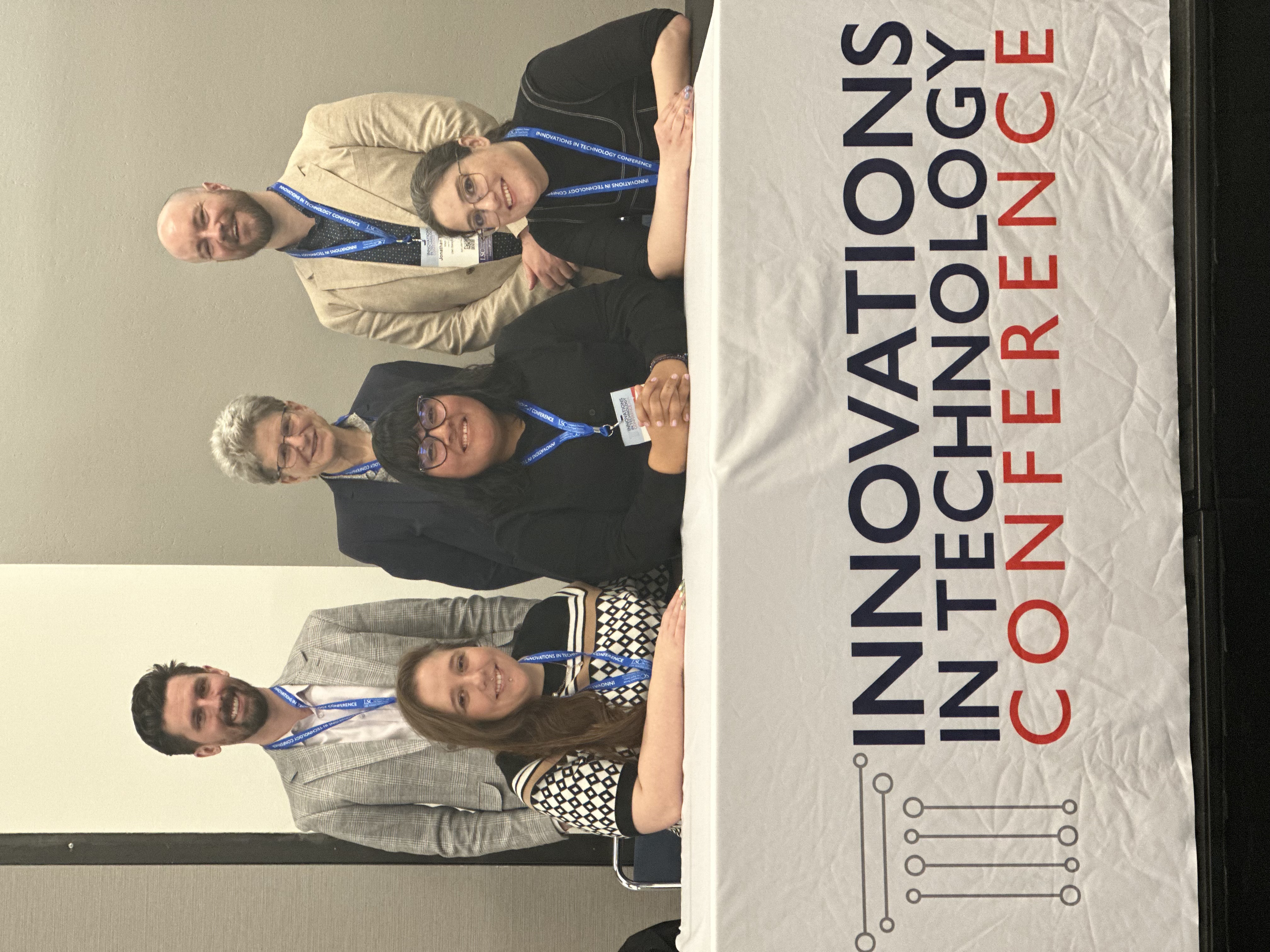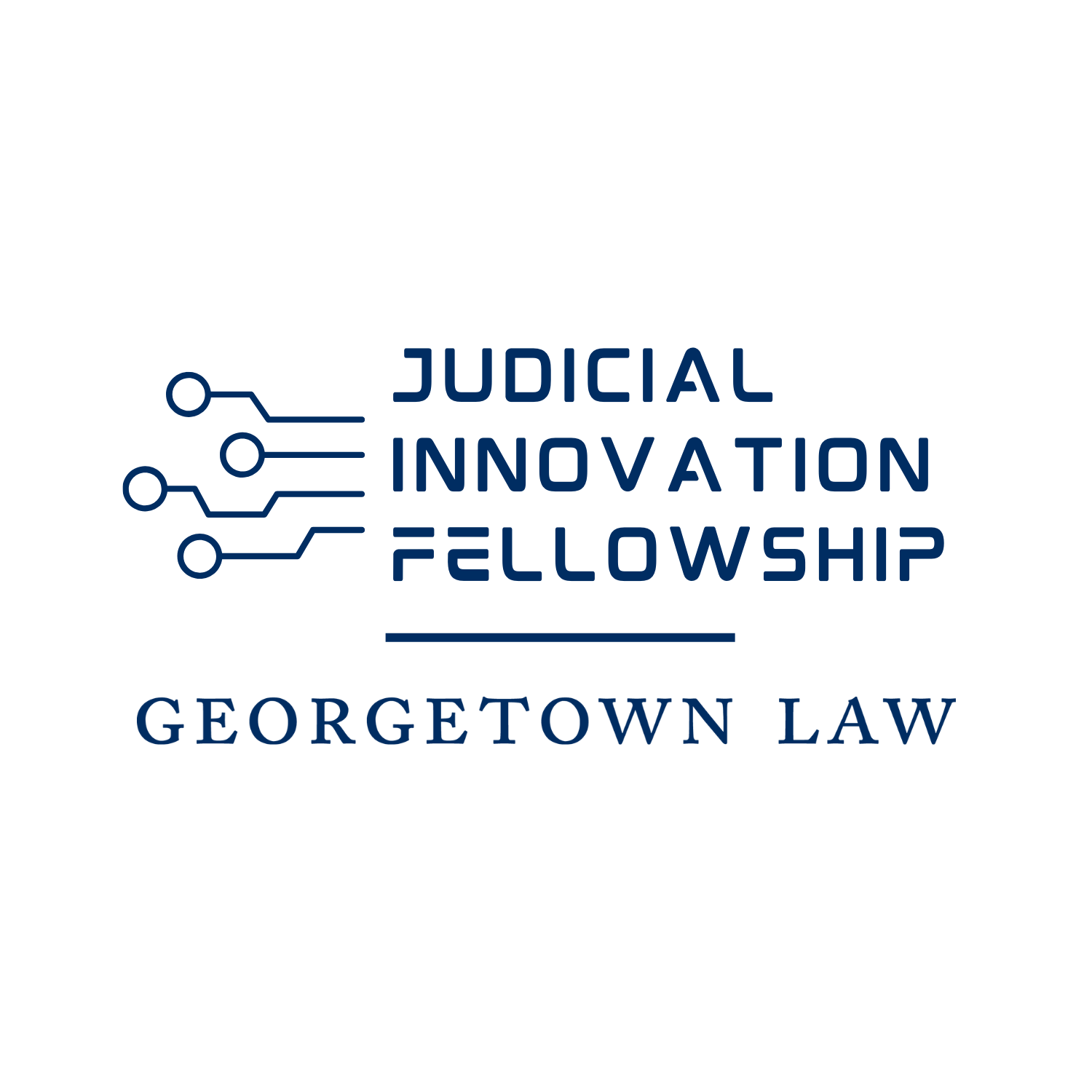The Judicial Innovation Fellowship (JIF) is an initiative incubated at the Justice Lab at Georgetown Law Center’s Institute for Technology Law and Policy. The JIF is a year-long fellowship for technologists, designers, and user testers to transform justice across state, local, territorial, and tribal courts. It is an exciting new opportunity for technologists, product people, and designers to use their talents for justice. Partnering with state, local, territorial, and tribal courts, fellows will have the opportunity to work inside courts to improve how people access justice. Courts gain a unique opportunity to improve operations and equity by receiving a Judicial Innovation Fellow.
The Hamilton County General Sessions Court Judicial Innovation Fellowship and Kansas Judicial Branch Judicial Innovation Fellowship SRL e-filing Initiative projects are the featured SJI Grantee Spotlight for March 2024.

In February, the Judicial Innovation Fellowship presented at the Legal Services Corporation’s Innovations in Technology Conference in Charlotte, North Carolina. It was an opportunity for forward thinking justice advocates to learn about the program and how JIF Fellows improve court technology and culture.
For example, Kat Albrecht, who works with the Hamilton County General Sessions Court in Tennessee, spoke about how shadowing different court staff helped her uncover persistent issues in the court’s data system. In an early discovery, she learned that criminal dockets printed in a hard-to-read font size, which caused headaches for clerks, judges, and litigants. Kat’s discovery has been relayed to other departments in county government, who are looking at potential long-term solutions to improve data operations within the criminal justice system.
On panel, they also were joined by Verenice Ramirez and her court partner, Jonathan Mark of the Utah State Courts’ Self-Help Center. Jonathan explained that Verenice, who is a designer, provides an otherwise missing point of view at the court. Having her on staff helped his team adopt project management software and new processes, like using Kanban boards to track project progress. This is something the department had wanted to do for some time, and having Verenice in the office lowered the learning curve, making adoption attainable. Similarly, they heard from Emily Lippolis that her work with the Kansas Courts has helped teach court partners about website design, which assists them in making more informed decisions when developing online portals for court patrons.
“Our fellows are not only bringing much needed design and data expertise to courts, they are
Tanina Rostain, Georgetown Law Professor and JIF Co-Founder and Faculty Director
winning over the hearts and minds of our court partners, which is a key element for the
sustainability of their particular projects and for the success of JIF in the long term.”
In all three instances, the fellows demonstrated that their impact extends beyond their individual projects to how their partner courts operate.
With information flowing in both directions during the conference, the fellows were also able to connect with fellow travelers from other states and learn more about the access to justice gap and justice technology. Collectively, the panel and the trip were a great success.
Now back in their respective courts, the fellows are starting the second half of their fellowship. In the coming months, they will synthesize recommendations for feedback and refinement.



